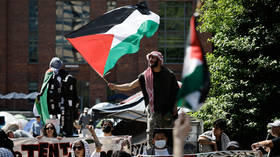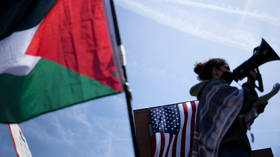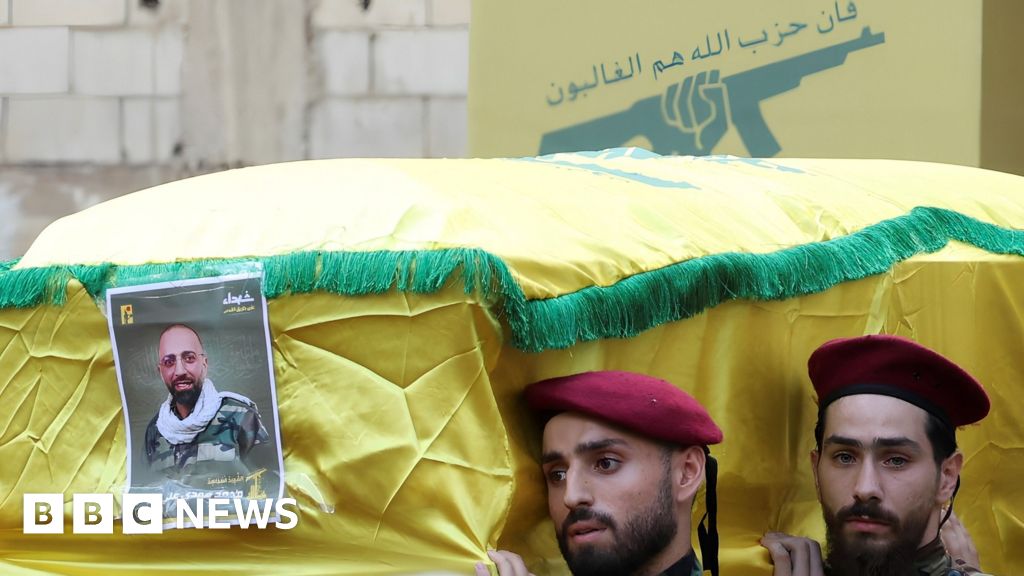Israel’s new large-scale offensive is being criticized all over the world, but the PM may still turn the situation to his advantage
It has been seven months since the tragic attack by Palestinian radical groups on Israeli territory. That strike was incomparable to any other since the founding of the Jewish state in terms of methods and the number of Israeli casualties. However, the Israeli response turned out to be even more tragic and aggressive.
The Interministerial Committee of Israel’s 37th government, led by Benjamin Netanyahu and formed on October 11, 2023, to manage Israel’s military operation in Gaza, increasingly threatens to set the entire global community against the Jewish state.
The situation worsened with the start of the Israeli military operation in the densely populated city of Rafah in southern Gaza. On the evening of May 6, the Israeli military reported that it was conducting targeted strikes on Hamas facilities in the eastern part of Rafah. The Israeli Air Force struck more than 50 targets in the city, according to the Times of Israel, citing Israel Defense Forces (IDF) spokesman Daniel Hagari.
He added that the strikes were carried out amidst preparations for a military operation in the eastern part of Rafah. Hagari recalled that on the previous Monday, the IDF had ordered the evacuation of civilians from this part of the city. It is worth noting that currently, according to various sources, about 1.5 million refugees are in Rafah, having found shelter there after the start of the Israeli operation in the north of Gaza.
The military campaign in Rafah pursues two main objectives – the return of Israelis kidnapped during the October attack and the destruction of the Palestinian Hamas movement, as stated in an address by Netanyahu. “We have already proven during the previous release of the kidnapped that only military pressure on Hamas is a necessary condition for their return,” the leader said.
According to Netanyahu, control over the Rafah checkpoint was a “very important step on the path to undermining the military and administrative capabilities of Hamas.” He thanked Israeli soldiers for the “perfect execution of the task” and expressed condolences to the families of those who died in recent days.
On May 6, Hamas informed Qatari and Egyptian mediators of its agreement with their proposal for a ceasefire in Gaza, Al Jazeera reported, citing a high-ranking source in the movement. The ceasefire proposal involves three stages of settlement, each lasting 42 days. It envisages the complete withdrawal of Israeli troops, as well as a hostage exchange, according to the deputy head of Hamas.
Israel’s response to Hamas’ ceasefire proposal came the next day. Netanyahu considered Hamas’ agreement to the ceasefire parameters as an attempt to disrupt the military operation in Rafah. He pointed out a strong divergence of the militants’ demands from the goals of the Jewish state. “Israel cannot accept a proposal that threatens the security of our citizens and the future of our state,” Netanyahu stated. He instructed the Israeli delegation at the ceasefire negotiations in Cairo to insist on conditions necessary for the release of hostages and ensuring the country’s security.
Netanyahu’s adviser, Dmitry Gendelman, said the country’s military cabinet had not abandoned plans to advance on the city, although the Palestinian group accepted the mediators’ proposal from Qatar and Egypt about a ceasefire in Gaza.
On May 7, the head of the Israeli Ministry of Defense, Yoav Gallant, stated that Israel does not intend to stop the operation in Rafah until victory over Hamas is secured, or until the beginning of the return of the hostages.
“Yesterday I ordered the Israel Defense Forces to enter the Rafah area, seize the border crossing, and proceed further. This operation will continue until we eradicate Hamas in the Rafah area and throughout the Gaza Strip, or until they begin returning hostages,” he said during a visit to troop locations on the southern part of the border of Israel and Gaza.
Thus, the Israeli authorities are not planning to stop and will continue the offensive on Rafah. Netanyahu previously stated that the Jewish state will continue its military actions against Hamas, even if his country “remains alone.”
International reaction to the Rafah offensive
Before the operation in Rafah began, following Israel’s order for the evacuation of civilians from the southern part of Gaza, Hamas spokesperson Sami Abu Zuhri told Reuters that Israel’s evacuation order and the expected offensive represent “a dangerous escalation that will have consequences.”
“We affirm that any military offensive in Rafah will not be a picnic for the fascist occupying army. Our brave resistance at its peak, the Qassam Brigades, is fully prepared to protect our people and defeat this enemy,” he said.
Palestinian President Mahmoud Abbas’ spokesperson, Nabil Abu Rudeineh, declared: “The occupying authorities have essentially begun preparing to commit the greatest crime of genocide by invading Rafah.”
“The American administration, which provides financial and military support to the occupation and stands against the international community to prevent the implementation of international legality resolutions and stop aggression, is the one encouraging Netanyahu and his leaders to continue the massacre against the Palestinian people,” he added.
Egypt’s Foreign Ministry called on Israel to “exercise the highest level of restraint” and avoid further escalation at this “very sensitive time,” as negotiations on a ceasefire and the release of captives continue. The Egyptians noted that Israel’s attack on Rafah would create “an extreme humanitarian danger threatening over a million Palestinians in the area.”
In his statement, Jordan’s foreign minister, Ayman Safadi, said: “Another massacre of Palestinians is being prepared. The inability to prevent the slaughter will be an indelible stain on the international community. Too many mass killings have been permitted. Enough.”
Saudi Arabia’s Foreign Ministry demanded international intervention to stop the genocide of Palestinians in Gaza amid the operation in Rafah. “The Ministry confirms the Kingdom’s categorical rejection of the continued blatant violations of all international resolutions calling for the cessation of these mass killings and their violation of international law and international humanitarian law without restraint, exacerbating the humanitarian crisis and hindering international peace efforts,” reported the ministry.
UN human rights experts have demanded an end to arms shipments to Israel as they are “used to kill women and children.” In a published statement, they expressed horror at reports of mass graves recently found in Gaza. “We are horrified by the details concerning mass graves recently discovered in the Gaza Strip,” stated the experts. The Nasser and Al-Shifa hospital complexes in Gaza “were found to contain over 390 bodies, including women and children, many of whom reportedly bore signs of torture,” the experts noted.
The assault on Rafah has also been condemned by the UN Secretary-General Antonio Guterres, the head of EU diplomacy Josep Borrell, and the governments of Egypt, Turkey, and China. Officials in France and the United Kingdom had previously declared the operation in Rafah unacceptable.
In many capitals around the world, massive anti-Israel demonstrations are ongoing. For several weeks, students at leading Western universities have been causing mass unrest and urging the authorities of their countries to stop the war in the Middle East and put pressure on Israel.
There is also talk of sanctions against Israel among Western officials. Belgian Prime Minister Alexander De Croo said he was pushing for EU-wide trade sanctions against products made in Israeli settlements. According to the politician, Brussels decided to impose restrictions against Israel several weeks ago, but if only Belgium out of the entire bloc adopts them, “trade routes will simply change.” “That’s why we’ve been talking – not loudly declaring it – with other European countries for several weeks about how we can resolve this issue,” he said.
De Croo recalled that there is an association agreement between the EU and Israel, which also includes conditions on human rights compliance. If it is proven that Israel violates them, the EU can impose sanctions, the Belgian PM believes: “We asked Josep Borrell to study this aspect.”
Earlier, NBC News reported, citing sources, that the International Criminal Court (ICC) might issue arrest warrants for Netanyahu, Gallant, and high-ranking military officials in connection with the violence in Gaza. Netanyahu, however, has asked US President Joe Biden to help prevent the issuance of ICC arrest warrants for high-ranking Israeli officials.
The veracity of this information is supported by the news that a group of US Republican senators warned the ICC’s chief prosecutor, Karim Khan, against issuing an international arrest warrant for Netanyahu and other Israeli officials, threatening “tough sanctions.”
Although everything remains at the level of condemnation with no real actions taken against Israel, the tension is undoubtedly rising. Whether Israeli authorities will be able to withstand international pressure and whether threats will escalate from words to actions, only time will tell. Nonetheless, the current situation demonstrates unprecedented dissatisfaction with Israel’s policy towards the Palestinians.
What could the operation in Rafah lead to?
At least 30 people were reportedly killed on Tuesday in IDF strikes on targets in Rafah. According to Al Jazeera’s sources, Israeli military planes also hit a school housing displaced persons in the Ash-Shati refugee camp, resulting in one death and several injuries. Meanwhile, Arab media reported that a Jewish businessman was killed in Alexandria, Egypt, apparently on nationalist grounds.
The situation is very complex. Regardless of how precise the Israeli strikes are, they will lead to the mass killing of thousands of civilians. This will further increase the world’s negative perception of Israel. Jewish communities worldwide are concerned as they believe the actions of the Israeli authorities will lead to an increase in anti-Semitism and aggression against ethnic Jews.
Although official figures in Israel claim that the IDF’s actions in Rafah are aimed at eliminating threats from Hamas, there is an alternative view suggesting that Netanyahu wants to prolong the conflict to stay in power.
There is logic in this opinion, as Israel was experiencing a severe internal crisis before the events of October 7. The current government faced a serious internal crisis due to a proposed legal reform, which has caused significant controversy within Israeli society. This reform, aimed at limiting the powers of the Supreme Court, including the cancelation of the “doctrine of reasonableness” which allowed the court to assess government policy, has sparked fierce debates and mass protests.
Proponents of the reform argue that the changes are necessary to strengthen democracy by returning control of the judiciary to the elected government and simplifying the administration of the country. However, critics believe that such actions will undermine the independence of the judiciary and increase corruption, as well as negatively impact the protection of minority rights and the overall democratic structure of the country.
These changes are particularly sensitive in the context of Netanyahu’s ongoing corruption case, as weakening the judiciary could potentially help him avoid punishment. This causes additional dissatisfaction and concerns among the population. The proposal for legal reform also led to unprecedented measures, such as calls by military reservists to boycott their duties as a form of protest, raising questions about security and stability in a country facing external threats.
Thus, the conflict in Gaza has helped the Israeli authorities distract the population. Security issues are paramount for every citizen of the Jewish state. Moreover, the history of Israel’s conflicts shows that each time there was a major armed confrontation with Palestinian forces, more Palestinian territories came under the de facto control of Israel. Possibly, the current ultra-right government in Israel wants not only to resolve the internal crisis but also to expand its territories by occupying Gaza.
But another question arises: will the Israeli authorities succeed? Perhaps they did not expect the military operation with Hamas to cause such a resonance on the world stage. On the other hand, until recently, Netanyahu assumed that if he could extend the “state of conflict” until Donald Trump possibly returns to the White House, Washington could help him solve internal issues. Clearly, Netanyahu has always had strained relations with Democratic administrations in the US, and Joe Biden is no exception.
He hoped for Trump’s return, but it seems that hope is beginning to wane. This opinion can be inferred from a recent interview Trump gave to Time magazine, where he officially stated that he no longer believes in resolving the Palestinian-Israeli conflict through the creation of two states. Thus, he publicly renounced the idea of supporting Palestinian statehood. While this should be a good sign for Netanyahu’s nationalist government, in the same interview Trump praised Minister Benny Gantz, who many see as Netanyahu’s rival and most likely successor. Notably, Trump tries not to mention Netanyahu more than necessary, which is undoubtedly a bad sign for the current Israeli PM. One of Trump’s key phrases during the interview was: “there are many good people who can do this job,” implying that Netanyahu is not irreplaceable.
In conclusion, Netanyahu can be said to have become a hostage to his own ideas. Everything indicates that his bet has probably not worked, and the consequences will be very severe for him, as more and more Western allies suggest that he should step down and even see Gantz as a more convenient alternative. However, it is still too early to write Bibi off, as he has proven multiple times that he can turn the most severe failures into personal victories. Against this backdrop, many analysts in the Middle East fear that the Israeli prime minister may provoke a large-scale regional war with Iran, as there have already been attempts, and everyone has understood how fragile peace in the region is.

 7 months ago
31
7 months ago
31












